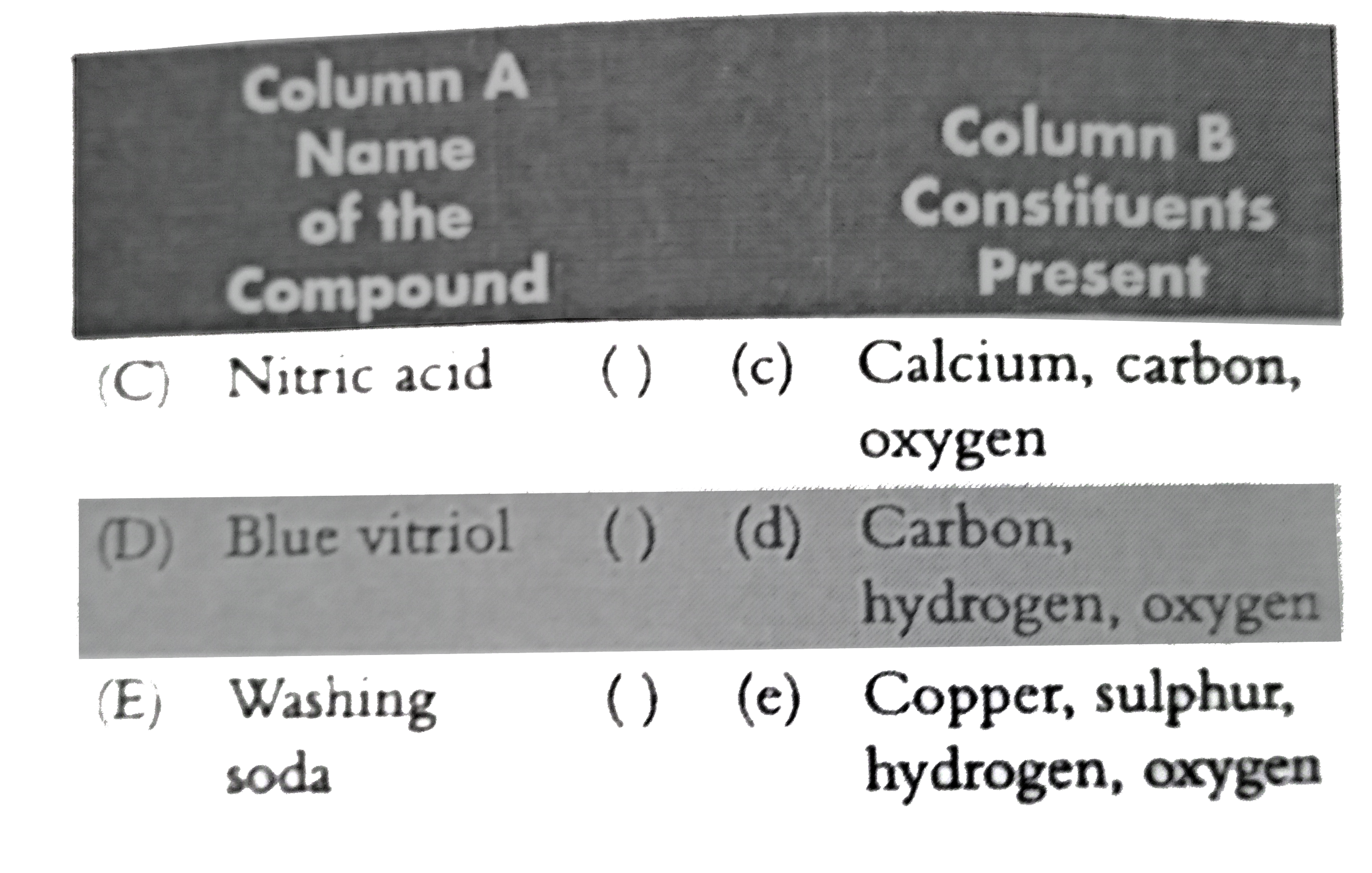In which type of change, formation of a new substance takes place? Name it and give three examples of such change.
A new substance is formed during a chemical change. Examples of chemical changes are :
(i) During rusting of iron, iron is converted into a new substance, hydrated iron oxide called rust.
(ii) Coal burns in air to give carbon dioxide, water and heat.
(iii) During formation of curd, milk is converted into a new substance curd.
Similar Questions
Knowledge Check
What type of change is formation of coal ?

 AA−e,B−d,C−a,D−c,E−bBA−c,B−d,C−e,D−b,E−aCA−b,B−e,C−a,D−c,E−dDA−c,B−d,C−b,D−e,E−a
AA−e,B−d,C−a,D−c,E−bBA−c,B−d,C−e,D−b,E−aCA−b,B−e,C−a,D−c,E−dDA−c,B−d,C−b,D−e,E−aIn which of the following change in hybridisation is taking place ?
ABF3+NH3→[H3N→BF3]BNH3+H+→NH+4CSbF5+F−→[SbF6]−D2HClO2→HClO+HClO3The change in which the shape , size, appearance or state of a subtance may alter but its chemical composition remains the same is called a physical change . In a physical change, no new substance is formed. Any change that involves the formation of a new substance and leads to a transformation of chemical identity is called a chemical change.
Chemical changes are usually accompanied with heat exchanges. Chemical changes are permanent changes which are usually irreversible.
An example of a chemical change isAformation of cloudsBglowing of an electric lightCdropping sodium into waterDdissolving of salt in water.
One or more new substances are formed in a chemical change.
View SolutionFill in the blanks in the following statements:
Changes in which new substances are formed are called _______changes.
View SolutionChanges in which new substances are formed are called …………. Changes.
View SolutionThe change in which the shape , size, appearance or state of a subtance may alter but its chemical composition remains the same is called a physical change . In a physical change, no new substance is formed. Any change that involves the formation of a new substance and leads to a transformation of chemical identity is called a chemical change.
Chemical changes are usually accompanied with heat exchanges. Chemical changes are permanent changes which are usually irreversible.
Which of the following is always true when a substance undergoes a physical change ?
View SolutionThe change in which the shape , size, appearance or state of a subtance may alter but its chemical composition remains the same is called a physical change . In a physical change, no new substance is formed. Any change that involves the formation of a new substance and leads to a transformation of chemical identity is called a chemical change.
Chemical changes are usually accompanied with heat exchanges. Chemical changes are permanent changes which are usually irreversible.
Which of the following involves both physical and chemical change?
View Solution

